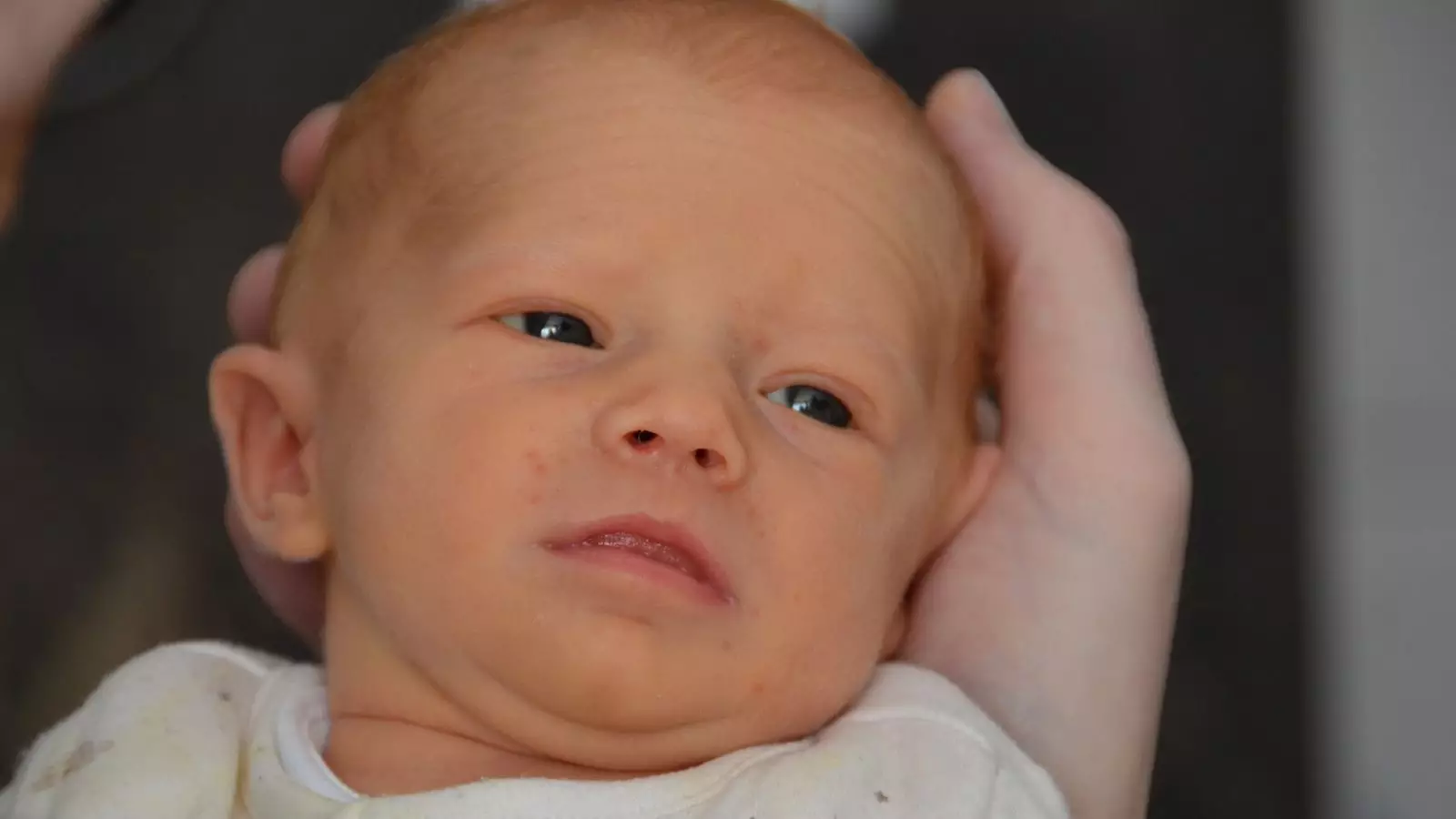In an extraordinary turn of events that feels like it has leapt straight out of the pages of a science fiction novel, the United Kingdom has witnessed its very first birth from a womb transplant. Grace Davidson’s heartfelt journey culminated with the arrival of her daughter, Amy Isabel, a living testament to the transformative power of medical innovation and familial love. This landmark event is not just a personal triumph for Grace and her family; it symbolizes hope on a broader scale for countless women grappling with the impacts of conditions like Mayer-Rokitansky-Kuster-Hauser (MRKH) syndrome.
Imagine living in a world where the miracle of childbirth appears out of reach due to the absence of a womb. For 36-year-old Grace, this was once a daunting reality, a haunting thought that interfered with her emotional landscape. Yet, on that fateful day in February, when her daughter was born via planned caesarean section, an unprecedented transformation was set in motion.
Emotional Tapestry of Family and Sacrifice
The emotional gravity of Grace’s experience is woven tightly with the fabric of familial bonds. Her older sister, Amy Purdie, a mother herself, did not just donate an organ; she gave her sister the gift of motherhood. The selflessness exemplified by Amy is a powerful reminder of the lengths family members will go to support one another. It’s a narrative that should resonate deeply within society, particularly as familial roles and definitions continue to evolve.
As Grace held her daughter for the first time, she found it hard to fathom the reality that surrounded her: “It was just hard to believe she was real.” In that moment, the weight of her past—filled with medical examinations, uncertainty, and emotional pitfalls—seemed to evaporate, showcasing the profound joy that accompanies new life. The tears of elation that both Grace and her husband Angus shed upon seeing their baby for the first time bring to light a critical aspect of parenting: the relentless journey of longing, dashed hopes, and finally, fulfillment.
A Beacon of Hope for Thousands
The implications of this historic birth resonate far beyond the Davidson family. For women affected by MRKH syndrome or similar reproductive conditions, this successful womb transplant represents a monumental breakthrough. In a world where women already face a myriad of challenges relating to fertility and motherhood, the idea that medical science has progressed to this level should serve as a rallying point for ongoing advocacy and support.
The narrative surrounding Grace’s journey also shines light on the significant advancements in reproductive medicine and the medical procedures that make such life-altering choices possible. The contributions of medical professionals like Professor Richard Smith and Isabel Quiroga cannot be underestimated; their commitment to perfecting womb transplantation opens up avenues for women who have been denied access to a fundamental aspect of life. Such advances provoke necessary questions about accessibility, ethics, and the future of reproductive rights—discussions that hold paramount importance in a society striving for equity in healthcare.
Complexity Meets Reward in Medical Advancement
The surgical procedure itself was anything but simple. Grace’s transformation encapsulated a whirlwind of medical expertise, meticulous planning, and high emotional stakes. Both Professors Smith and Quiroga navigated the immense pressure of ensuring Grace’s safety, while also focusing on achieving a successful birth. Their proud declaration of witnessing the fruits of their labor materialize serves as validation not just for them but for women everywhere who dare to hope for motherhood against all odds.
This narrative invites us to examine a pressing societal issue: the resilience of women in the face of adversity. The emotional weight of maternal longing cannot be understated, and stories like Grace’s serve to amplify the call for greater understanding and support for women facing reproductive challenges.
While Grace’s story indeed carries an overwhelming undercurrent of joy and triumph, it simultaneously highlights a pressing need for continued diligence and advocacy. The journey of womb transplantation is only just beginning, offering a spark of hope that can ignite broader conversations about reproductive rights and women’s health. The Davidson family’s experience not only offers a glimpse into the incredible possibilities of modern medicine, but also serves as a poignant reminder that, sometimes, the greatest gifts arise out of the most complex and challenging journeys.

Leave a Reply